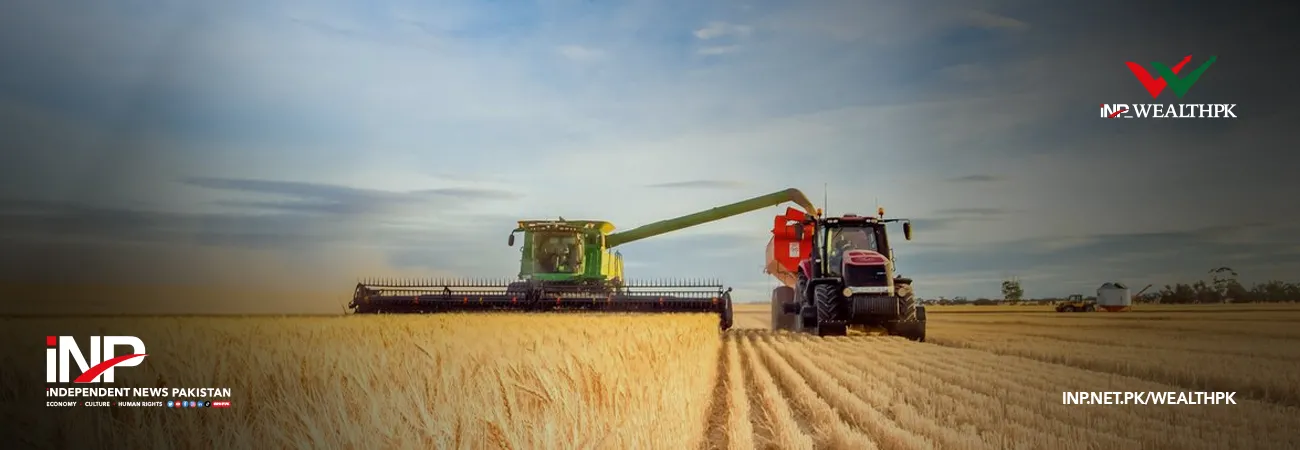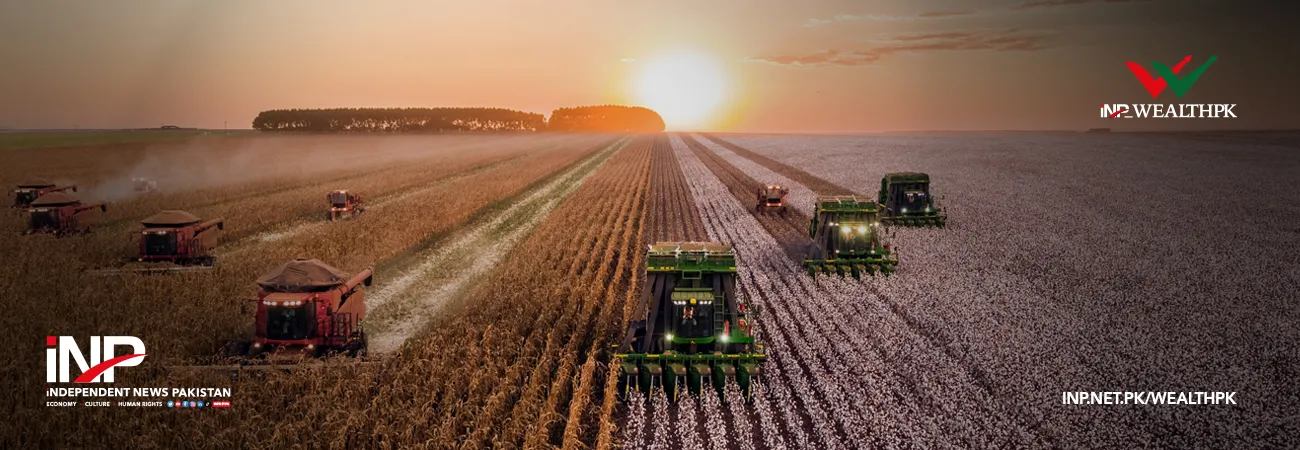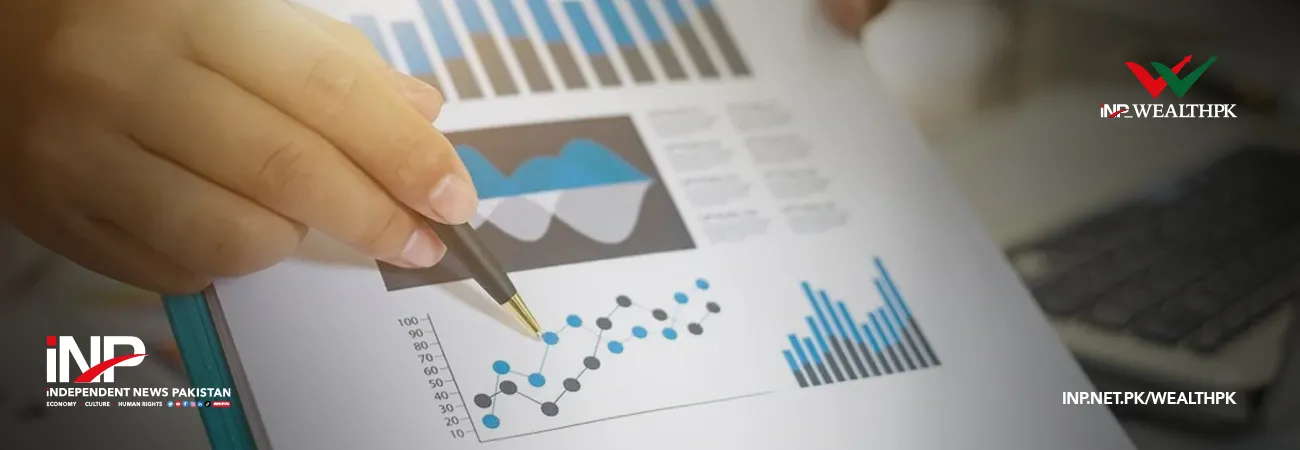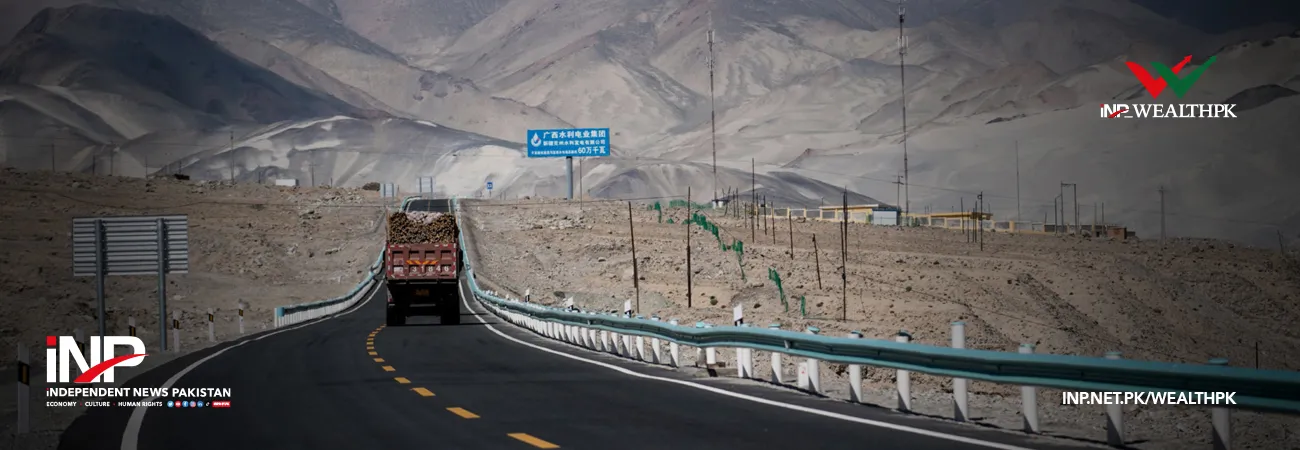آئی این پی ویلتھ پی کے
Muhammad Saleem
Pakistan needs solid research to fix its farming challenges. Dr. Farooq Ahmed of the University of Agriculture Faisalabad said that it’s clear without science and research, Pakistan’s agriculture will continue to suffer. “But with the right approaches of investments, partnerships, and communication, we can solve many challenges like droughts, pests and poor yields.”
Solid research isn't a luxury anymore — it’s a survival tool for farmers and for the future of Pakistan, he emphasized. He said, “In response to emerging challenges, we have to adopt modern methods of research combined with practical implementation. We need to ascertain that without effective, evidence-based research, we’re farming blindly.”
“Research helps us understand which crops will benefit both farmers and the nation, which regions are most suitable, what fertilizers to apply, and how to reduce the impact of climate change. For example, in India, scientists have developed wheat that grows well in dry areas. Pakistan also needs the same crops which can resist climate change,” he explained.
“By saying goodbye to traditional methods, we must focus on the latest research methods which bring data-based solutions,” he said. Dr. Ahmed stressed that everyone from top to bottom knows the agriculture sector is facing its biggest challenge: low productivity. Pakistan’s crop yields are much lower than other countries due to poor soil health, outdated and substandard seed varieties, and increasing climate stress, he explained.
“Scientific research will enable experts to train farmers on how to deal with pests, drought, and emerging crop diseases. Currently, most farmers still rely on guesswork– not research-based practices,” he said.
Zafar Mehmood, a farmer, told WealthPk that although agriculture is the backbone of the economy, feeding millions and providing jobs, farmers are still struggling. Yields are low, water is scarce, and climate change is taking a serious toll on the agriculture sector, he added.
He said that while Pakistan has hardworking farmers who are meeting the country’s food needs, they are facing multiple issues due to a lack of funding, coordination, and modern technology. These issues are holding farmers back, forcing many to rely on traditional farming methods, he added.
“Pakistan has research centers and educational institutions serving the nation. However, many research reports never reach the farmers. We need to connect universities, labs, and farmers, so science reaches the fields, uplifting the agriculture sector and improving the financial condition of farmers,” he emphasized. He suggested that the government should revamp research centers through public-private partnerships to achieve meaningful results.
“For decades, my family has been involved in agriculture and has developed extensive experience in addressing its issues. However, now the majority of them are confused and frustrated due to the increasingly unpredictable weather. Sometimes there is too much rain; other times, farmers struggle desperately to irrigate their lands,” he said.
The seeds being used by farmers are not strong enough to withstand extreme heat or disease. It is the responsibility of agricultural experts to introduce climate-resilient seed varieties. Otherwise, farmers will not be in a position to continue in agriculture for long, he warned.
He said that given the current inflation, the rulers should provide subsidies to farmers so they can focus on their crops. Unfortunately, the reality is different–fertilizers and sprays are not only expensive but often counterfeit. “If state-run research centers work directly with farmers, we can achieve much better results.”
“The world is moving toward precision agriculture — we must catch up by adopting climate-smart practices. We need crops that survive heat, flood-resistant varieties, water-efficient irrigation methods, and pest-resistant vegetables. In addition, farmers also need real-time soil testing, research on organic farming, and smarter use of fertilizers,” he added.

Credit: INP-WealthPk











